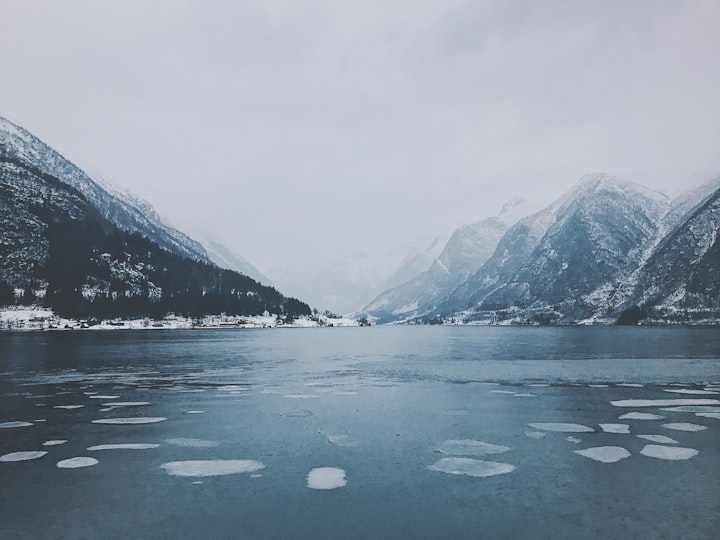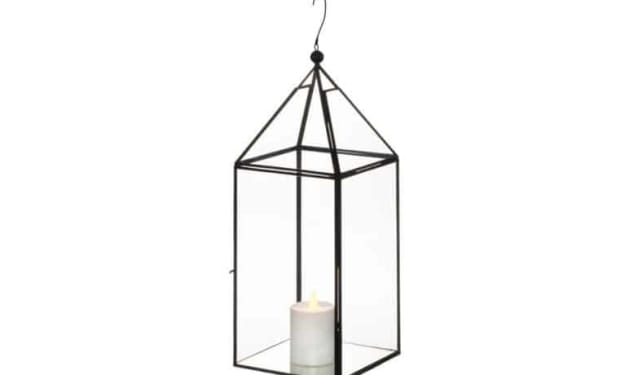Still Water
Fimbulvetr: in Norse mythology, the Mighty Winter that lasts three years and precedes Ragnarok, the end of the world.

Loki was now captured, and with no thought of mercy he was taken to a cave and bound onto the tops of the three stones. Skadi took a poisonous snake and fastened it above Loki so that its poison dripped onto his face...He convulses so violently that the whole earth shakes. He will lie bound there until Ragnarok.
First will come the winter called Fimbulvetr… (from the Prose Edda)
With a mighty shove, the fisherman launches his boat and takes three running steps before jumping in.
His younger son is already working the oars, building speed as they break through the thin layer of ice and head out to open water. The red-cheeked youth sings heartily into the spring air.
Not that you can tell it’s spring, yet. The thaw is late this year, and frost still coats the barren trees. But some trick of geography, of currents and hot springs, keeps their little inlet from freezing over completely. It’s their secret, their way of starting the fishing season early. Besides, the fish keep their own schedule.
His elder son will not be joining them this year. That son is to be married later this summer, and he is with his betrothed’s clan, far to the north. The fisherman is sad to see his son go, of course; but he will celebrate the union of the clans and the love these two young people have found.
He hopes the fishing will be good this season. He would like to be able to contribute well to his son’s wedding.
The sky is overcast and has been for some time; he thinks it’s been a month since he’s seen the sun. He worries briefly that this is an omen, a sign of the gods’ displeasure over some perceived slight, but dismisses the thought as superstition. He does have one ritual though.
He raises his eyes to the milky sky and says a prayer, as he does on the first fishing day of each season, and asks the gods to bless the coming year.
War will rage across the land and brother will kill brother. The bonds of family will be shattered...it will be an age of axes and an age of swords, an age of winds, an age of wolves. It will lead to the ruin of the world. (From the Prose Edda)
The thaw did not come. The moon has waxed and waned a dozen times, and the trees remain coated with frost.
The crust of ice on the inlet pond is thicker, and the fisherman has to work harder to get his boat into open water. He has no one to help him this year. No thaw meant no crops; no crops meant hunger; hunger meant raiding between the clans, and now there is outright war. Agreements have been forgotten as each clan fends for itself, and his younger son--able bodied and strong from working the oars--is away fighting.
Even the alliances of matrimony between clans mean nothing now. The fisherman knows that his sons are on opposite sides of this conflict, and he despairs of them meeting in combat.
He holds onto the desperate hope that he can find enough fish to prevent starvation, though he does not even know if the fish are running this year, if they have kept to the cycle that the seasons have forgotten.
He prays to any gods that will listen that the world be set right again.
The whole earth, together with the mountains, will start to shake so that the trees will loosen from the ground, the mountains will fall, and all fetters and bonds will sever and break. Then the Fenris wolf will break free...he will open his great jaws so that the upper part of his jaws touches the sky, while the lower part rests on the earth. From his eyes and nostrils flames will flare and burn… (From the Prose Edda)
For three years now, there has been no thaw.
The little inlet pond has frozen through. The ice stretches as far as the fisherman can see. Even if he could get his boat to open water--which he can’t, not by himself--the fish have gone.
Hunger has become famine; famine has become pestilence. Life has become death.
He holds his elder son’s dagger in his hands. His elder son’s bride had sent it to him last year, wrapped in a black cloth of mourning. It was right, she had written, that the dagger be returned to her husband’s birth clan. The fisherman’s son no longer had any use for this dagger, and would never again.
The mountain behind the fisherman’s house has been spitting smoke and ash for the last three days. In the ground beneath him, he can hear a faint rumbling, like the low growl of a great beast ready to spring.
This morning the fisherman held tight to his younger son as the boy lay on the bed, soaked in sweat; and he clenched his jaw and tried to force away the tears as his son’s fever-bright eyes closed and the wracking breaths left his body for the last time.
The earth’s growl is building. He can feel it reverberating in the air around him. He is tired of waiting.
The mountain behind him explodes with a roar, flames leaping into the air.
He falls to his knees on the ice, the dagger in his hands an offering, and he prays that he will see his sons again soon as fire rains down from above.
About the Creator
T.J. Samek
I went from being a kid who would narrate the world around me to an adult who always has a story in her head. Now I find sanctuary in my Minnesota woods, where the quiet of nature helps my ideas develop.






Comments
There are no comments for this story
Be the first to respond and start the conversation.